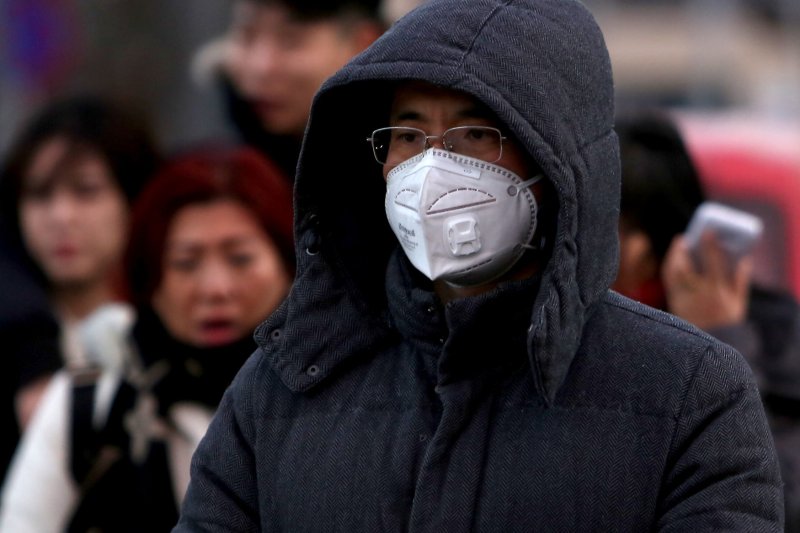CDC and local officials on Friday confirmed the second U.S. case of coronavirus, noting they are also monitoring 63 other people who reported symptoms potentially indicative of infection. File Photo by Stephen Shaver/UPI |
License Photo
Jan. 24 (UPI) -- The U.S. Centers for Disease Control and Prevention confirmed Friday the second American case of Wuhan coronavirus as a woman in Chicago who recently traveled to the Chinese city where the outbreak started.
The agency said it was evaluating 63 other samples for potential infection, but risk of spread remains low.
Allison Arwady, commissioner of the Chicago Department of Public Health, said the patient is a woman in her 60s who had traveled to Wuhan, China -- ground zero for the outbreak -- in late December and returned Jan. 13.
The woman is "clinically doing well and is currently in stable condition," Arwady said.
The patient remains hospitalized, but officials wouldn't say where or give other information.
She is the second case the CDC has confirmed in the United States. A man in his 30s is being treated for coronavirus in Seattle. He had also traveled to Wuhan.
Illinois health officials said the Chicago case was confirmed earlier this week after samples were sent to the CDC lab in Atlanta for testing. The agency plans to make testing procedures available to local public health agencies across the country as soon as possible.
"The risk for transmission before symptoms develop appears to be low, which is reassuring," Arwady said. The woman "had limited social contacts" prior to developing symptoms, and none of her contacts are ill.
The woman has been cooperative with public health officials, who have been tracking her movements since her return from China to gauge the extent to which others may have been exposed.
She was not symptomatic while traveling and has had "limited contact" with the people outside her home. She has not taken public transit or attended large gatherings, Arwady said.
The patient started experiencing symptoms several days after returning from China. She contacted her physician, who immediately instructed her to put on a mask and referred her to a local hospital with infection control facilities.
"The risk [to the public] remains low nationally and in Chicago," Arwady said.
The woman returned to the United States before the CDC started screening travelers last week at five international airports with regular flights to and from China, including Chicago's O'Hare.
About 2,000 travelers on 200 flights have been screened.
Although testing of samples collected from these travelers is ongoing, only one has been referred to a healthcare facility for further evaluation.
Nancy Messonnier, director of the CDC's National Center for Immunization and Respiratory Diseases, said the agency has been testing "respiratory samples" -- mucous or phlegm -- from suspected cases since early January.
Sixty-three samples from travelers to China living in 22 states are being evaluated. The results are in for 11 of them, and all have been negative.
The CDC plans to begin regular reporting of coronavirus case information on its website next week. The agency has deployed a team to Chicago to support that investigation and recommends that Americans avoid travel to Wuhan.
Those traveling to other areas of China should take precautions, including avoiding those who are sick and practicing good hand hygiene, Messonier said.
"This is a rapidly changing situation both abroad and nationally," she said. "We are expecting more cases in the U.S., and we are likely to see more cases among travelers and human-to-human transmission. However, CDC believes that the immediate the risk to the American public remains low at this time."















